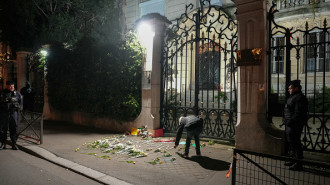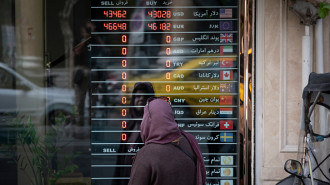'A car crash': NGOs slam UK government's bruising aid cuts
Proposed UK international aid cuts have been slammed by rights groups as "a car crash" and a "complete mess" following findings of a British government inquiry published on Tuesday.
The UK's annual foreign aid budget has been reduced from 0.7 percent to 0.5 percent of national income, a cut of almost £4 billion - more than a 40 percent drop compared to 2019.
Findings published as part of the International Development Committee's [IDC] inquiry on the future of UK aid scrutinised the potential impact of the move by Boris Johnson's government and included input from leading foreign policy experts and charities, such as the World Health Organisation, Overseas Development Institute and Save The Children.
The findings revealed a devastating picture of government mismanagement, lack of transparency and an intention to turn away from conflict-affected areas in the Middle East, such as Yemen and Syria.
Plan International, a humanitarian organisation advocating for children's rights and equality for girls, said the aid cuts were a "car crash" and a "complete mess".
"The FCDO’s [Foreign, Commonwealth & Development Office] approach to the changes has been mismanaged. It appears to have been rushed, with very little consideration or assessment of what impact [cuts] will have on programme participants," the group said.
The organisation claimed that existing aid programmes were given 24 hours notice to model for a 25 percent budget cut and then heard their funding would be slashed by 70 percent.
The Middle East was mentioned repeatedly in the inquiry's evidence as an area bearing the worst blow of the budget cuts, with the Conservative government turning their focus to the Indo-Pacific region.
"This decision to withdraw, and to withdraw so quickly due to the speed of the cuts, is hugely harmful and risks increasing instability and insecurity in the region," said the international development organisation Bond.
The Norwegian Refugee Council [NRC], which receives 5 percent of its funding from UK aid and works on the ground in places like Yemen and Syria, said: "It is more important than ever that UK aid reaches those who are most vulnerable, in line with humanitarian principles, [not] political or economic interests."
The inquiry's findings said the government was placing "value for money" above the genuine needs of a developing country and had set out priorities for development with no clear plan or funding for their achievement.
A statement from UK foreign office told the inquiry that the cuts were a "tough but necessary decision".
The Foreign, Commonwealth and Development Office said they were "mindful of the impact that reducing or closing programmes may have on our supply partners" and that they had engaged in talks with a number of organisations and parliamentarians about the cuts.
"These discussions have been well received by our partners," it added.
Aid groups, such as Plan International said: "There has been no real consultation with external partners at any level."
Aid cuts in Yemen, Syria
Johnson's government announced that there will be a near 60 percent drop in support. UK aid has helped pull the country back from the brink of famine, treated children for malnutrition and rolled back diseases like cholera, the NRC has said.
The aid has saved millions of lives, and the cuts will strangle a lifeline countless Yemenis depend on, the group added.
In Syria, the UK has cut humanitarian funding by nearly a third compared to last year.
"These cuts will put lives on the line inside the country and for refugees in the region," the NRC said. "It will reverse years of investments made by the UK in improving humanitarian conditions inside Syria."



